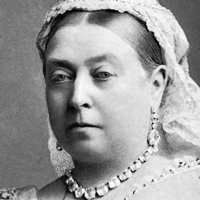Empress Dowager Cixi typ osobowości MBTI
Osobowość
"Jaki typ osobowości jest {profilename}? {profilename} jest typem osobowości {mbti} w mbti, {enneagram} - {iv} - {tritype} w enneagram, {big5} w Big 5, {sociionics} in Socionics."
It's really hard to vote her as Si-aux. What the way she operated was really anti-Si, moreover it's rather evident in her affinity toward the West while everyone around her was loathing it. But after further reading, it's even harder to vote her as an ENTJ, especially looking at the way she dealt with the Boxer rebellion and Westerners. And this description fits Cixi: "(ESTJs) are sure of themselves, their views, and their morals. They see the external world as a world of possibilities that can change at any moment, while they are internally very solid. They may seem stubborn and are not easily swayed. People with strong Si naturally become pretty ritualistic in their everyday behavior because they find positive experiences that work for them and want to continue having those experiences. They also might highly value “traditions” in the personal sense.
Biografia
Empress Dowager Cixi (Chinese: 慈禧太后; pinyin: Cíxī Tàihòu [tsʰɨ̌.ɕì tʰâi.xôu]; Manchu: Tsysi taiheo; 29 November 1835 – 15 November 1908), also known as the "Old Buddha", was a Chinese empress dowager during the Qing dynasty. Originally a concubine of Xiangfeng Emperor, Cixi rose to power after her husband's dead in 1861, and she acted as a co-regent with the Empress Dowager Ci'an. Throughout the years, Cixi was increasingly involved in the government affairs, and her influence was overpowering two emperors, Tongzhi and Guangxu. Her rule was widely seen as controversial, particularly during the Boxer rebellion. After the rebellion ended in 1901, Cixi focused on modernizing China and designed the transition to the constitutional monarchy. She held considerable power for 47 years, and effectively ruled for the total 36 years.
Osobowość correlate

Napoléon Bonaparte

Otto von Bismarck

Alois Hitler

Empress Elisabeth of Austria

Pedro II of Brazil

Queen Victoria

Frederick Douglass

Alexander I of Russia







